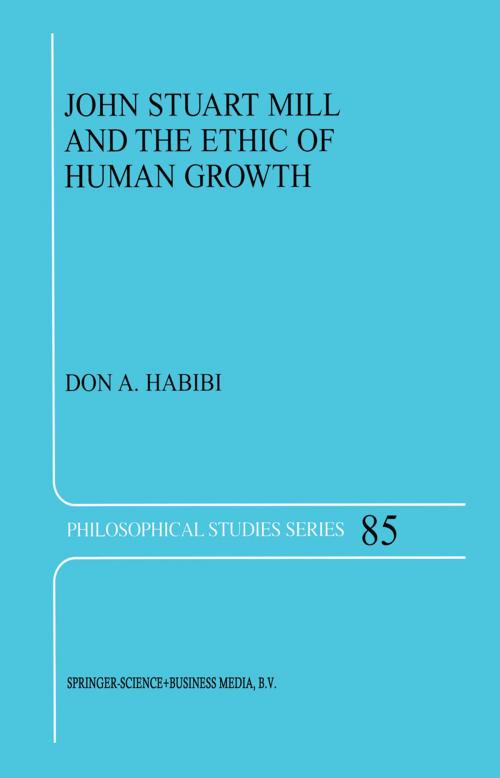John Stuart Mill and the Ethic of Human Growth
Nonfiction, Religion & Spirituality, Philosophy, Modern, Metaphysics| Author: | D.A. Habibi | ISBN: | 9789401720106 |
| Publisher: | Springer Netherlands | Publication: | March 14, 2013 |
| Imprint: | Springer | Language: | English |
| Author: | D.A. Habibi |
| ISBN: | 9789401720106 |
| Publisher: | Springer Netherlands |
| Publication: | March 14, 2013 |
| Imprint: | Springer |
| Language: | English |
In this well-researched, comprehensive study of J.S. Mill, Professor Habibi argues that the persistent, dominant theme of Mill's life and work was his passionate belief in human improvement and progress. Several Mill scholars recognize this; however, numerous writers overlook his 'growth ethic', and this has led to misunderstandings about his value system. This study defines and establishes the importance of Mill's growth ethic and clears up misinterpretations surrounding his notions of higher and lower pleasures, positive and negative freedom, the status of children, the legitimacy of authority, and support for British colonialism. Drawing from the entire corpus of Mill's writings, as well as the extensive secondary literature, Habibi has written the most focused, sustained analysis of Mill's grand, leading principle.
This book will be useful to college students in philosophy and intellectual history as well as specialists in these fields.
In this well-researched, comprehensive study of J.S. Mill, Professor Habibi argues that the persistent, dominant theme of Mill's life and work was his passionate belief in human improvement and progress. Several Mill scholars recognize this; however, numerous writers overlook his 'growth ethic', and this has led to misunderstandings about his value system. This study defines and establishes the importance of Mill's growth ethic and clears up misinterpretations surrounding his notions of higher and lower pleasures, positive and negative freedom, the status of children, the legitimacy of authority, and support for British colonialism. Drawing from the entire corpus of Mill's writings, as well as the extensive secondary literature, Habibi has written the most focused, sustained analysis of Mill's grand, leading principle.
This book will be useful to college students in philosophy and intellectual history as well as specialists in these fields.















